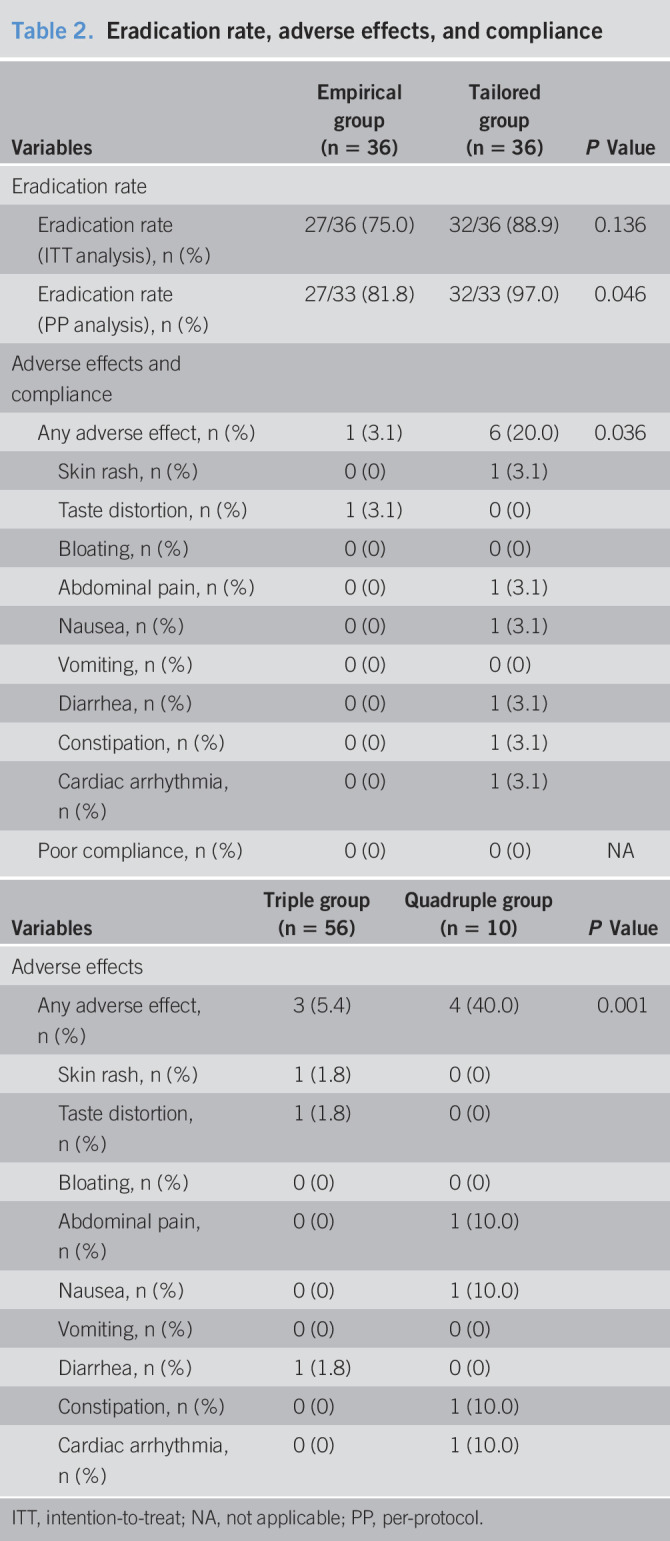Table 3.
Factors affecting eradication rates (intention-to-treat analysis)

| Eradication rate in subgroups | Total (n = 72) | Empirical group (n = 36) | Tailored group (n = 36) | Multivariate analysis | |
| OR (95% CI) | P Value | ||||
| Sex | |||||
| Male, n (%) | 41/72 (56.9) | 17/24 (70.8) | 16/17 (94.1) | Reference | |
| Female, n (%) | 31/72 (43.1) | 10/12 (83.3) | 16/19 (84.2) | 0.898 (0.104–7.741) | 0.922 |
| Age, yr, mean (SD) | |||||
| <65 yr old, n (%) | 25/28 (89.3) | 10/13 (76.9) | 17/20 (85.0) | Reference | |
| ≥65 yr old, n (%) | 33/37 (89.2) | 17/23 (73.9) | 15/16 (93.8) | 1.048 (0.131–8.358) | 0.965 |
| BMI, kg/m2, mean (SD) | |||||
| <25 kg/m2, n (%) | 31/34 (91.2) | 8/13 (61.5) | 23/26 (88.5) | Reference | |
| ≥25 kg/m2, n (%) | 27/31 (87.1) | 19/23 (82.6) | 9/10 (90.0) | 1.027 (0.110–9.585) | 0.981 |
| Clarithromycin resistance | |||||
| Clarithromycin susceptible, n (%) | 51/72 (70.8) | 24/27 (88.9) | 21/24 (87.5) | Reference | |
| Clarithromycin resistant, n (%) | 21/72 (29.2) | 3/9 (33.3) | 11/12 (91.7) | 0.48 (0.007–0.346) | 0.003 |
| Regimen | |||||
| Triple therapy, n (%) | 56/72 (77.8) | 27/33 (81.1) | 22/23 (95.7) | Reference | |
| Quadruple therapy, n (%) | 10/72 (13.9) | NA | 10/10 (100) | NA | NA |
BMI, body mass index; CI, confidence interval; OR, odds ratio; NA, not applicable.
